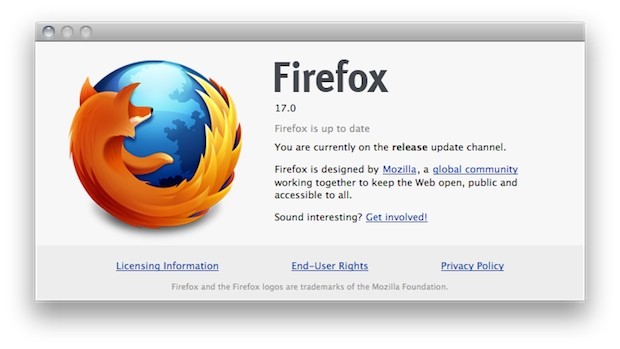 Mozilla - Brendan EichYou may recall that earlier this week that OkCupid the dating website started displaying a message to their users who were accessing the site via the Firefox web browser. The message brought to the attention of users the fact that Mozilla’s CEO was an opponent of Gay Marriage which OkCupid stated was something they couldn’t support as the company was dedicated to bringing people together regardless of sexual orientation. The full statement reads:
Mozilla - Brendan EichYou may recall that earlier this week that OkCupid the dating website started displaying a message to their users who were accessing the site via the Firefox web browser. The message brought to the attention of users the fact that Mozilla’s CEO was an opponent of Gay Marriage which OkCupid stated was something they couldn’t support as the company was dedicated to bringing people together regardless of sexual orientation. The full statement reads:
Hello there, Mozilla Firefox user. Pardon this interruption of your OkCupid experience. Mozilla’s new CEO, Brendan Eich, is an opponent of equal rights for gay couples. We would therefore prefer that our users not use Mozilla software to access OkCupid.
Politics is normally not the business of a website, and we all know there’s a lot more wrong with the world than misguided CEOs. So you might wonder why we’re asserting ourselves today. This is why: we’ve devoted the last ten years to bringing people—all people—together. If individuals like Mr. Eich had their way, then roughly 8% of the relationships we’ve worked so hard to bring about would be illegal. Equality for gay relationships is personally important to many of us here at OkCupid. But it’s professionally important to the entire company.
OkCupid is for creating love. Those who seek to deny love and instead enforce misery, shame, and frustration are our enemies, and we wish them nothing but failure.
If you want to keep using Firefox, the link at the bottom will take you through to the site.
However, we urge you to consider different software for accessing OkCupid:
[Google Chrome] [Internet Exploder] [Opera] [Safari]
Thank you,
OkCupid
Mozilla responded saying that they pride themselves on being held to a different standard and appologised that they hadn’t lived up to it on this occasion. They went on to apologize for not moving forward fast enough once the controversy started.
Fast forward a couple of days and we can confirm that Brendan Eich has resigned from Mozilla with immediate effect. Mr Eich, who co-founded Mozilla and was also known for being the creator of the JavaScript scripting language, made a $1,000 (£600) donation back in 2008 in support of California's Proposition 8 anti-gay law. Although this was originally passed it was overturned by the US Supreme court in 2013.
The appointment of Mr Eich was publically announced on 24 March and was met with much criticism on Twitter and other social networks but it wasn’t until OkCupid stepped in that things started heat up.
Mozilla has been losing users to other browsers over the years particularly since the launch of Google Chrome and is having a tough time trying to hold onto it’s users so this recent blow to the company certainly won’t be doing them any favors. With all but the most loyal fans and developers choosing Google Chrome, Mozilla really needs to up it’s game and avoid PR disasters like this one.
Do you still use Firefox or have you moved over to Chrome or one of the other browsers? Personally the only time I use Firefox now is when I’m doing cross browser testing and with UserAgent switchers improving in the Chrome WebStore this may become a thing of the past too. As usual we would love to hear your thoughts in the comment section below.











